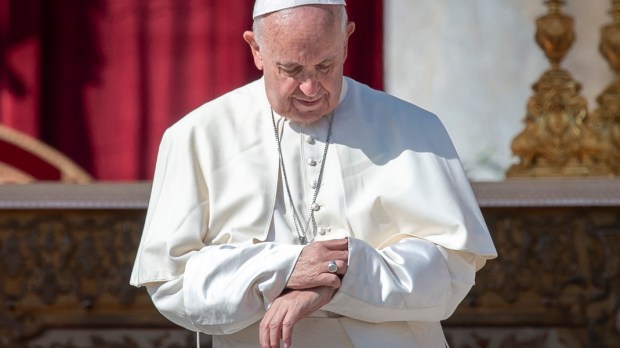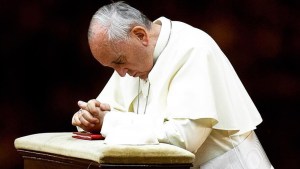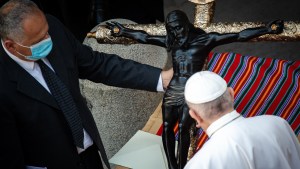Pope Francis met with a former member of his staff: Argentine priest Guillermo Marcó, who was in charge of the press office of the Archdiocese of Buenos Aires for 10 years, while Archbishop Bergoglio was the head of the see.
Father Marcó broadcast a part of the conversation, about 22 minutes, on his podcast.
One thing he asked the Pope is about his prayer life, if his style of prayer had changed from when he was a priest.
From the time I was a priest, yes, the Pope answered. He continued:
But it’s more or less the same as when I was a bishop.
The prayer of a bishop is to take care of the flock, to put it in evangelical terms, and the pope is a bishop, so he follows the same style. It is similar: to ask, to intercede, to give thanks for all the good that is done.
“Do you still wake up early to pray?” Father Marcó asked him, and the Pope answered: “Yes, that’s right, because if you don’t pray in the morning, you don’t pray later on, because you are caught in the meat grinder.”
Certainly, not everyone can follow the Pope’s advice in this regard, depending on life situations, but he echoes the advice of many saints, with a sprinkle of his own humor and visual style.
In general, the Pope repeatedly encourages small, simple prayers. At a general audience in 2021, he suggested that prayer is like the music staff, and the “melody” of life is written on it.
Little prayers: “Lord, have pity on us,” “Lord, help me.” So, prayer is a kind of musical staff, where we inscribe the melody of our lives. It is not in contrast with daily work, it does not contradict the many small obligations and appointments; if anything, it is the place where every action finds its meaning, its reason and its peace. In prayer.





